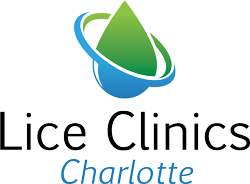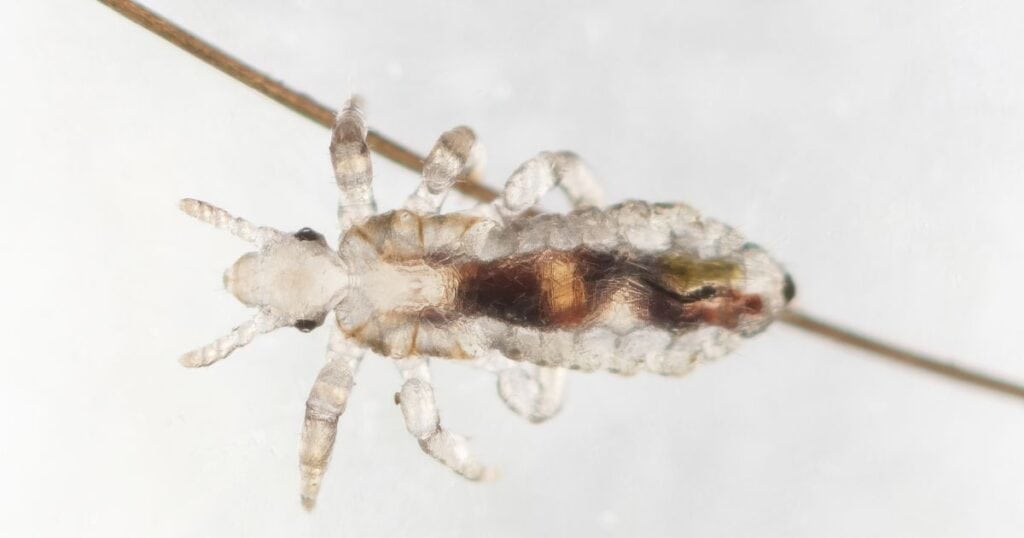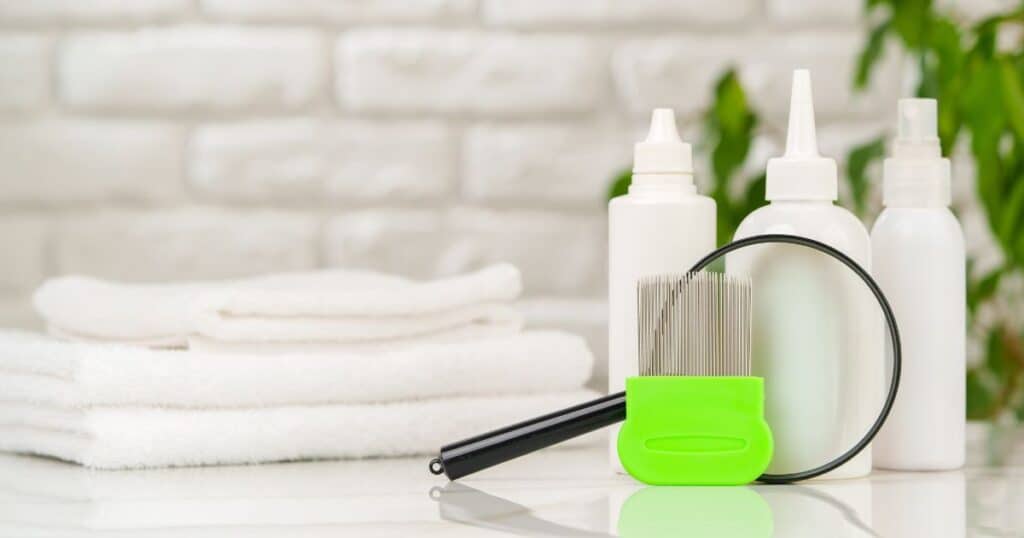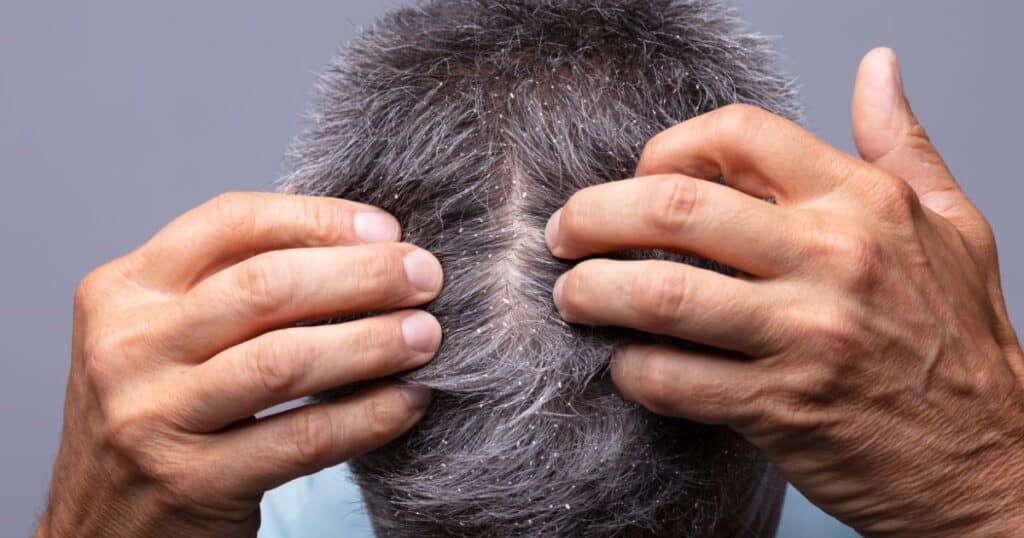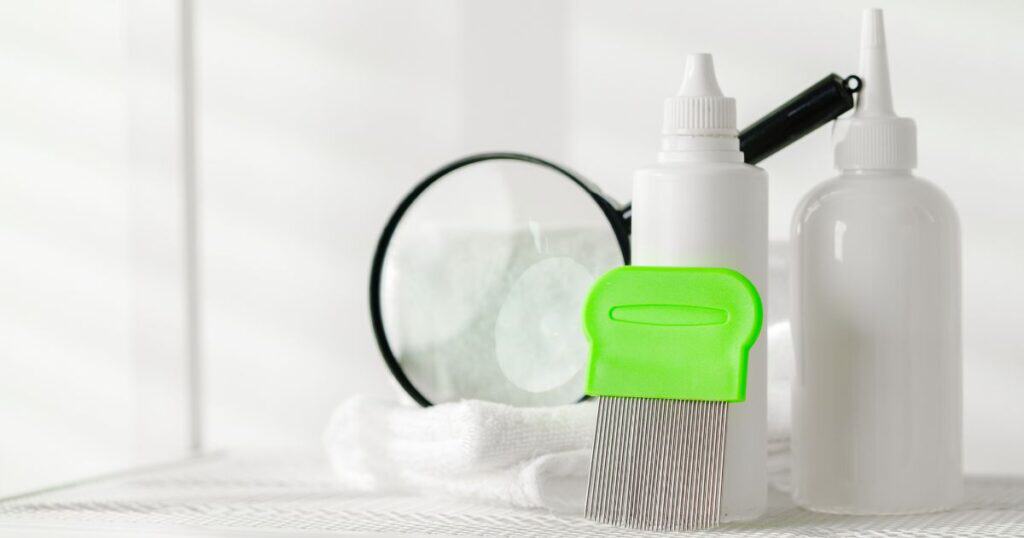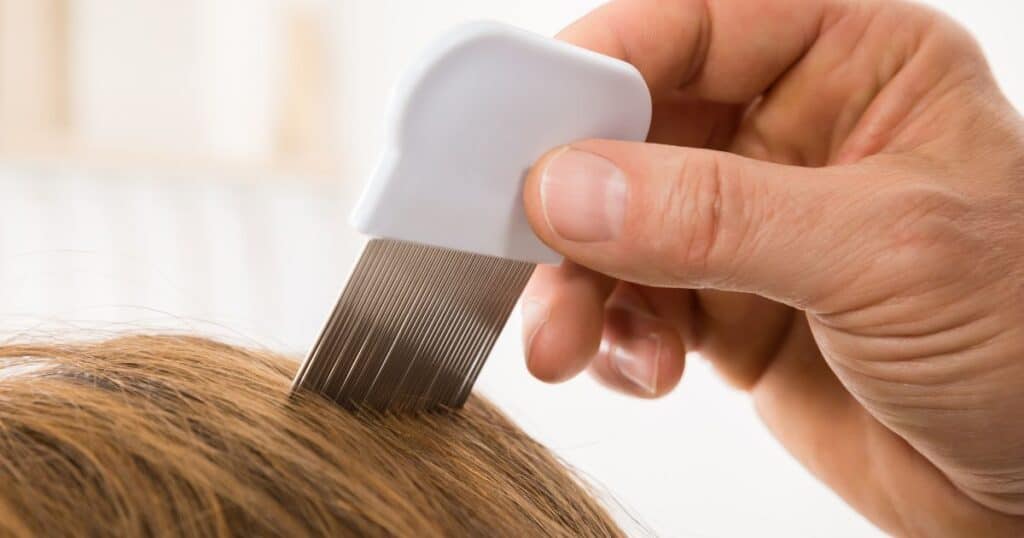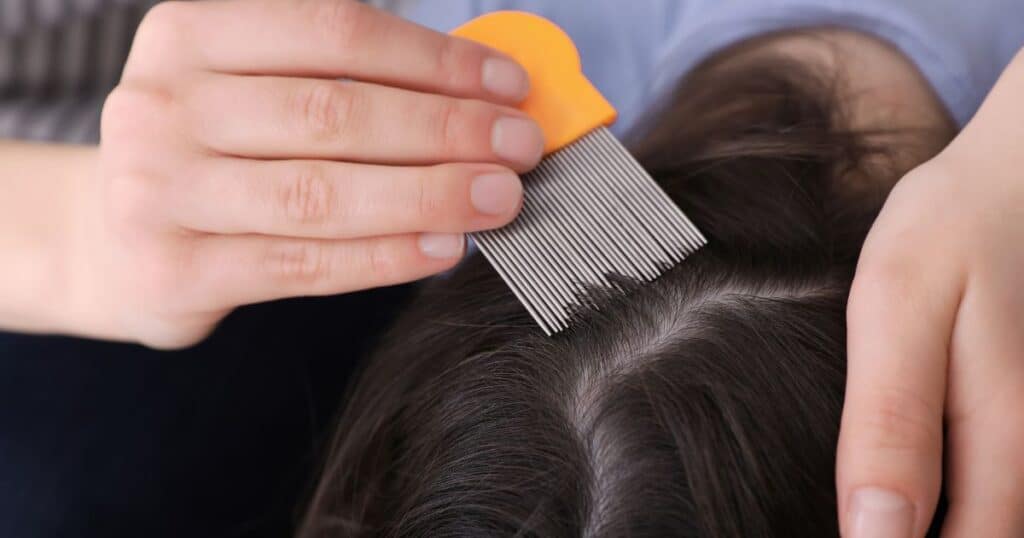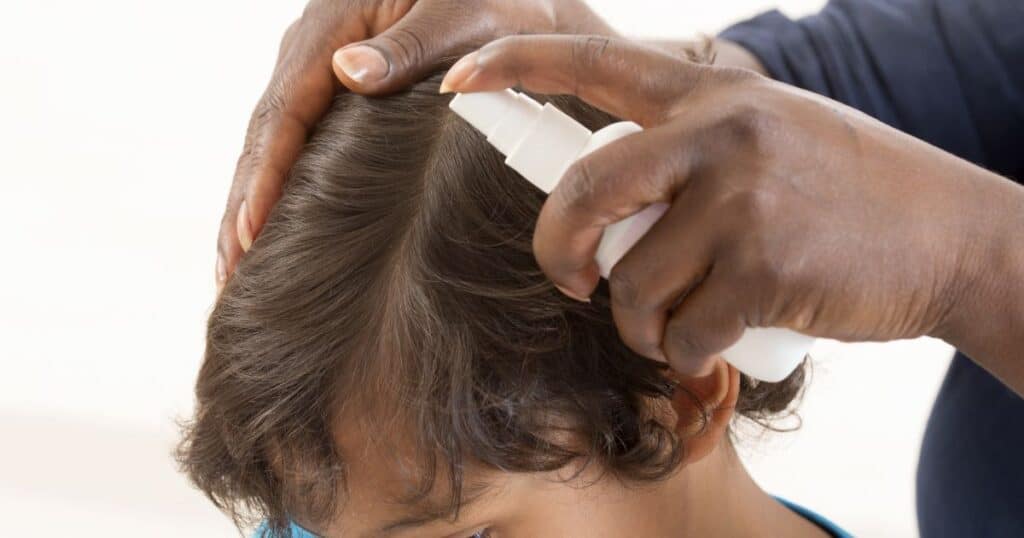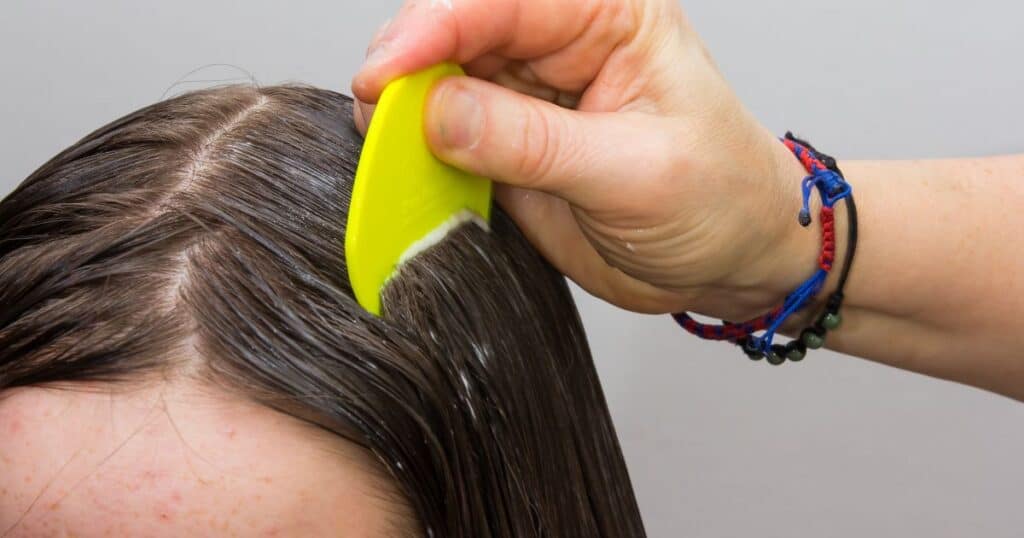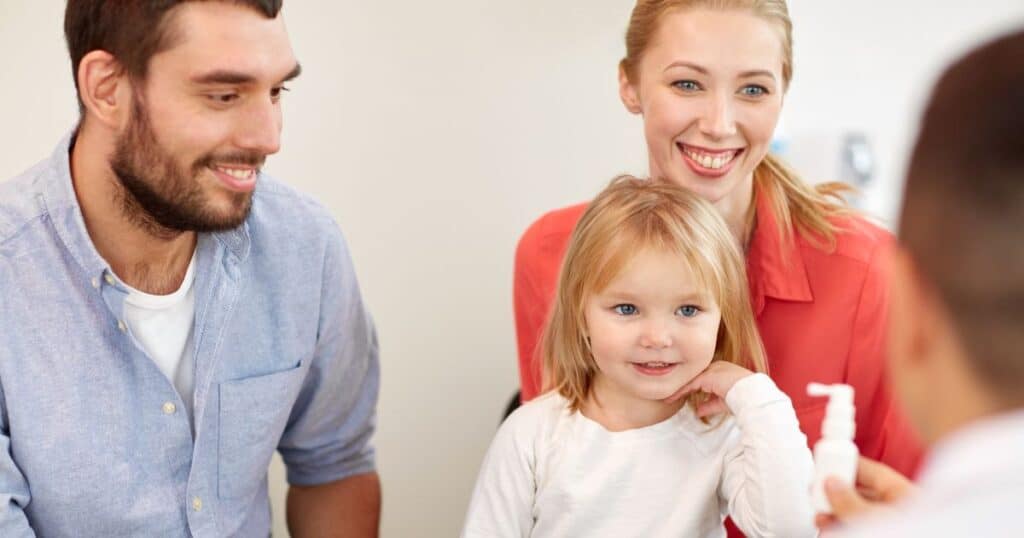Lice Questions Answered: Do Lice Prefer a Certain Blood Type?
Head lice are a common problem that many families encounter. Despite extensive efforts to understand and control these tiny parasites, a lingering question often arises: Do lice prefer a certain blood type? In this blog, we will delve into the details of this topic, referencing scientific research to uncover the facts behind lice feeding habits…
Read MoreHow to Remove Dead Lice Eggs From Hair
Head lice are a common problem, particularly among children. While removing live lice is the first step, removing dead lice eggs from hair is equally important to ensure complete eradication and prevent social stigma. Dead lice eggs, also known as nits, are not capable of falling out on their own. To maintain proper hygiene and…
Read MoreLice vs. Dandruff: Can Winter Dryness Make You Think You Have Lice?
Winter often brings its own set of hair woes, with many people confusing lice and dandruff due to the similar appearance of flakes and itching. This confusion is common, especially since up to 12 million children in the U.S. get lice each year, making it easy to mistake these pesky parasites for harmless winter dandruff. …
Read MoreCan Head Lice Live on Pillows? Understanding Risks and Proper Cleaning Methods
Head lice infestations are a common issue, affecting an estimated 6 to 12 million children in the U.S. each year, who are primarily between the ages of 3 and 11. These tiny parasites thrive on human scalps, feeding on blood and spreading mainly through direct head-to-head contact. This blog explores the common habitats of lice,…
Read MoreWill Lice Go Away Without Treatment?
Head lice is a common yet highly stigmatized issue that sweeps through schools and communities. Despite popular belief, contracting lice is not a reflection of personal hygiene or environmental cleanliness. Lice are equal-opportunity pests, thriving on human blood and spreading predominantly through direct head-to-head contact, which is common among school-aged children during play and other…
Read MoreHow to Tell if You Have Lice by Yourself
Did you know that each year in the United States, an estimated 6 to 12 million children between the ages of 3 and 11 experience head lice infestations? This common condition affects many households, especially those with school-aged children. Understanding how to tell if you have lice by yourself is essential for early detection and…
Read MoreHow to Get Rid of Lice Super Fast
Dealing with a lice infestation can be stressful and frustrating. Whether your child brings lice home from school or there is a sudden outbreak in your household, the urgency for quick lice removal becomes paramount. Understanding how to get rid of lice super fast is essential to avoid prolonged discomfort and potential spreading. Our comprehensive…
Read MoreIs Lice Chemical Treatment Safe? Understanding the Risks and Benefits
Does the itchy scalp scratching make you wonder, “Could it be lice?” Lice infestations are a common childhood annoyance, and getting rid of them quickly is key. However, with so many lice chemical treatment options available, it can be overwhelming to choose the right one. Exploring the benefits and risks associated with these treatments can…
Read MoreWill Lice Treatment Ruin Hair Color?
Approximately 6-12 million children are treated for head lice annually in the U.S. alone, highlighting the prevalence of this pesky issue. Amidst the chaos of managing lice, many worry about the potential impact of lice treatment on their carefully curated hair color. Can these treatments strip or alter the vibrant colors of your hair? As…
Read MoreWhat to Do When Your Lice Treatment Isn’t Working: Steps to Take
Discovering that your lice treatment is not working can be frustrating and disheartening. Each year, millions grapple with head lice, and many find that initial treatments simply don’t do the trick. Whether it’s due to resistant lice strains or application errors, the need for effective solutions is critical. If you’re facing lice treatment failure, you’re…
Read More